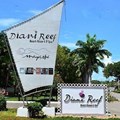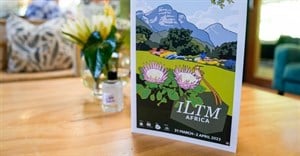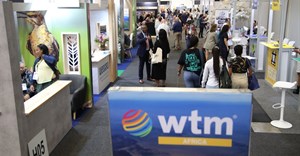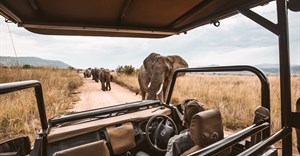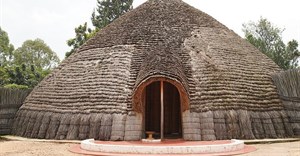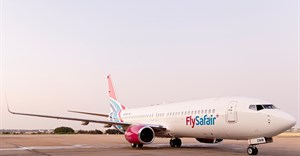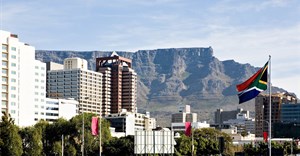Trending
Elections 2024
Jobs
- Baker - Commercial Bakery Vereeniging
- General Manager Vereeniging
- Front Desk Coordinator/Receptionist Vereeniging
- Freelance Graphic Designer/Web Designer/Reel Creator Cape Town
- Mid-Senior Travel Consultant Cape Town
- Partnerships and Business Development Manager Cape Town
- Head of Growth Cape Town
- Tourism Update - Sales Executive (Junior to intermediate) Johannesburg
#WTMA19: Turning the Africa misconception into a profitable, hyperlocal, luxury experience
This was the opening address made by Inspired Citizen founder, Anthony Berklick during his talk on day one of World Travel Market Africa 2019, held from 10-12 April at the Cape Town International Convention Centre.
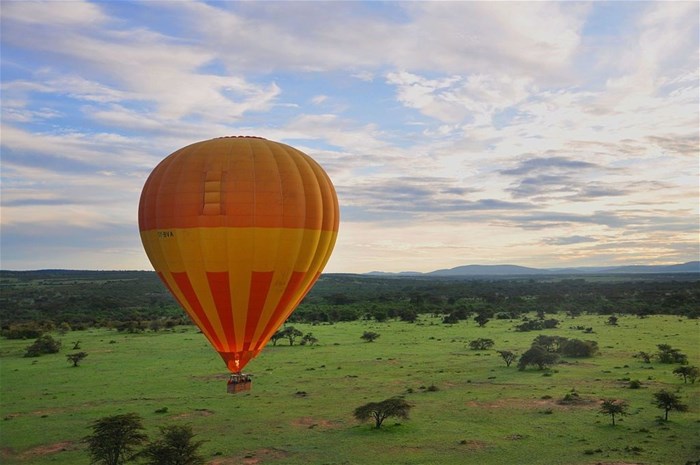
"Everyone thinks that you come here and that you are going on a safari and although that’s great and you can do that; there is so much more to offer than just a safari."
Berklick says that yes, Africa can be dangerous, but so can the rest of the world. "Not every country in Africa is dangerous – there are areas that are and there are areas that aren’t and at times, unfortunately, that is the misconception, that Africa doesn’t offer luxury experiences."
For most, Berlick says, there is a misconception that luxury experience does not exist in Africa – that Africa doesn’t offer amenities or that Africa is one giant country that is the same from the top to the bottom – that it's not a continent, but just Africa.
"Another misconception is health. That you have to get a bunch of shots or take a bunch of pills so that you don’t end up dead on your way back and that’s unfortunate. I brought a colleague with me to South Africa and she was petrified that she was going to get malaria in Cape Town, and I was like no, this is not a malaria zone. She thought for sure, after visiting United State government website – on all she needed to do when making her way to Africa - that if she lands in Cape Town that she was going to get attacked by mosquitoes that were going to give her malaria."
These misconceptions create challenges for Africa-based travel brands, says Berlick.
As a brand, whether you are a tour operator, a hotel, a DMO representative or tourism board representative, you need to, based on the challenges you might face:
• Delineate and separate your product from the rest.
• Inform your consumer of who you are through a strong brand voice and tone with social media marketing.
• Become an advocate and representation of the culture and country in which your brand exists.
• Create a story and fantasy around your travel brand and deliver that message to your consumer at every customer touch point.
• Show the diversity that exists here.
There is an opportunity and an African spirit you can develop on says Berlick, however, brands, DMOs or tourism boards don’t really make use of social media as they should. This creates a problem adds Berlick. "I think it's important to be an ambassador of your country, city and/ or experience – it’s everybody’s job to do that, to tell the story in an authentic, real way. You can do that with video, imagery and a really good website."
Berlick offers the below points in addressing misconceptions and assessing challenges:
• Create unique experiences that are perceived as high-end and luxurious, which has nothing to do with cost.
• Show your prospective consumer who you are, what you offer and how you are a microcosm of the place in which you operate at every customer touch point.
• Use social media as a free tool to show the truth, but create a fantasy through incredible images that will draw people to you.
Berlick goes onto say that luxury above all else is a feeling and not necessarily attribute to the cost of something. It’s important to have your customer’s needs looked after because that is what they are looking for, he says. That everyone has the power to create a luxurious experience – and an experience that actually sticks.
"You need to identify a central point, something that sets the tone for your experience and then gets creative."
Using Babylostoren as an example, Berlick says that as a brand, they anticipate their customer’s needs on every level:
"Rooms and cottages are stocked with anything one would need for a perfect stay: pots, pans, honey from the farm, rooibos from the farm, olive oil from the farm, wine from the vineyard, firewood, insect repellent, flashlights, boots for rainy days and more. Everywhere you look attention has been paid. They are committed to their message and it breathes through every experience on the property – hyperlocal, environmentally sensitive, freshness, sustainability, natural, home-grown, relaxed luxury and service."
Propagating plants is a skill every gardener should have!��
— Babylonstoren (@babylonstoren) March 11, 2019
Join our gardeners for a #workshop this Wednesday to learn the basics. BOOK NOW. https://t.co/Un5AkPCA2t #franschhoek pic.twitter.com/PnviJxQMWY
Berlick provides how-to's when projecting your brand's image and tone:
• Focus on creating stunning imagery,
• Create immersive videos and other experiences any way you can,
• Focus those images and videos on the details and the "hyper-local" ideas and concepts that make you special, and
• Disseminate them to people around the world through social media, email and your website.
Berlick adds that it is important to share info about the culture, about the people and about the continent and to steer away from the preconceived bad-wrap-notion and bad press internationally, and to remember that your job is never done, keeping the following takeaways in mind:
• Don’t be complaisant in realising how important your challenge is to give Africa, your country and your brand the image it deserves.
• Focus on becoming hyperlocal and “luxury-minded” to bring people into a unique and special experience.
• Partner with experts and tastemakers in travel who can help you realise your fullest potential.
Click through to our World Travel Market Africa section for more.









